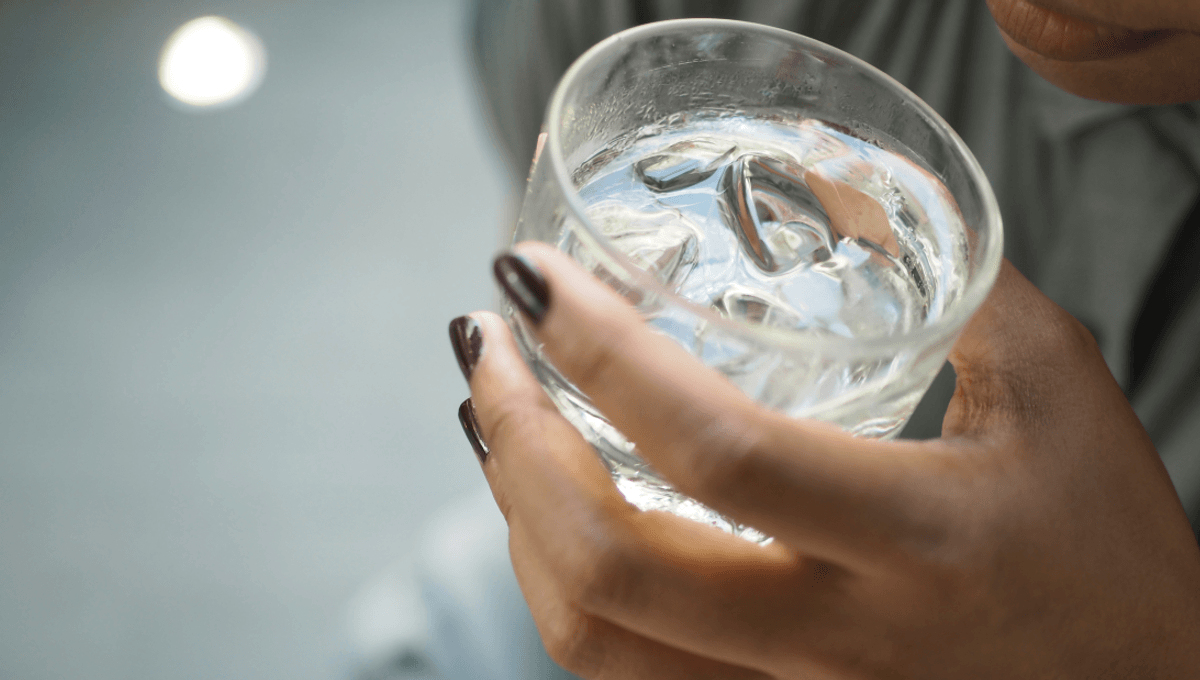
Stress can have a catastrophic effect on the body and it can be hard to find ways to regain control when you’re in the midst of it, but what if something as simple as a cold glass of water could change that? Icy, even. It might sound absurd, but it all ties into the vagus nerve, which in recent years has been increasingly linked to our gut and heart health, as well as mood.
The vagus nerve, also known as the vagal nerves, is a series of fibers that run from the brain to the abdomen as part of the parasympathetic nervous system. It controls many of the functions in our body that we have no voluntary control over, like digestion, heart rate, and immune function, but what if you found a way to stimulate areas like the vagus nerve? Could you find a way to control the uncontrollable?
Stimulating the vagus nerve
On the more extreme end of interventions, the Food and Drug Administration (FDA) have approved the use of implantable vagus nerve stimulators for the treatment of epilepsy and depression. The idea is that by synthetically stimulating the vagus nerve, the device can interrupt the activity that leads to seizures and alters mood.
The invasive approach requires surgery to implant the device under the skin of your chest, and from here, a wire threads deeper into the body to reach the left side of the vagus nerve. Electrical signals do the work, which is why the right side can’t be used as this would place it too close to the heart.
There are also devices that work from outside the body, helping to alleviate certain headaches by applying signals to areas of the neck. The application of these devices is being researched for inflammatory and bowel diseases, too, but is there a DIY approach you can try at home that doesn’t require surgeries or devices?
Before we dive in here, it’s important to note that you should always check with your physician before trying any new habits that could potentially influence the vagus nerve. While cold water is a relatively benign alternative therapy, in rare cases even a cold drink can trigger something called paroxysmal atrial fibrillation. Just ask this 35-year-old triathlete who reported palpitations after swallowing ice-cold water after exercise.
Improving vagal tone
On TikTok you can find lots of posts talking about how to “tone” the vagus nerve, and while social media sites are not to be considered reliable resources, it is possible to have poor vagal, or parasympathetic, tone. One marker of this can be heart rate variability (HRV), which measures the variation in time between each heartbeat.
As a rough rule, increased HRV is associated with greater cardiovascular fitness and resilience to stress, while low HRV is associated with illnesses including diabetes, epilepsy, and hypertension. Equally, it’s thought that high HRV indicates good parasympathetic tone, while low HRV indicates poor tone.
The best way to measure HRV is using a electrocardiogram (ECG), something most people don’t have access to. There are wearable monitors that can give readings too, though their accuracy is more questionable.
DIY ways to improve vagal tone
According to the authors of Can natural ways to stimulate the vagus nerve improve seizure control?, there are three key categories when it comes to stimulating the vagus nerve without devices: nutrition, exercise, and psychological stress. Within each category are several approaches that have been studied for their influence on vagal tone, including chanting, breathing exercises, resistance training, probiotics, and – you guessed it – cold water exposure (you can find the full list here).
“Studies have shown that subjects submerged to mid-sternal level in cold water kept at 14-15°C [57-59°F] or cold water (10-12°C) [50-54°F] facial immersion following exercise led to greater reactivation of the parasympathetic system as assessed by HRV indices,” wrote the authors. “Acclimation to cold has also been shown to increase parasympathetic tone.”
Dehydration alone can be enough to alter vagal activity, as demonstrated in a paper published in the International Journal of Sports Medicine that found drinking water after resistance exercise can benefit cardiac vagal reactivation. That glass of water can go one step further if you chuck in some ice, according to a paper in Clinical Autonomic Research that concluded: “Ice water ingestion can decrease heart rate through temperature stimulus-mediated vagal enhancement in healthy subjects.”
The potential influence of cold water has been considered for the treatment of depression, pain, migraine, and a broken heart, but in some cases, it may also be a placebo effect. It’s also worth noting that cold water therapy isn’t without its risks before you go plunging into a deep pond.
There’s no denying that the vagal tone is a highly influential nervous noodle when it comes to the parts of our bodies we have seemingly little control over, but research is growing as to how we may one day be able to influence it for the better. Unfortunately, if you were planning on opting for the “Mozart Effect”, we have some bad news.
[H/T: WomansWorld]
The content of this article is not intended to be a substitute for professional medical advice, diagnosis, or treatment. Always seek the advice of qualified health providers with questions you may have regarding medical conditions.
Source Link: How The Vagus Nerve And A Glass Of Water Can Influence Your Mood